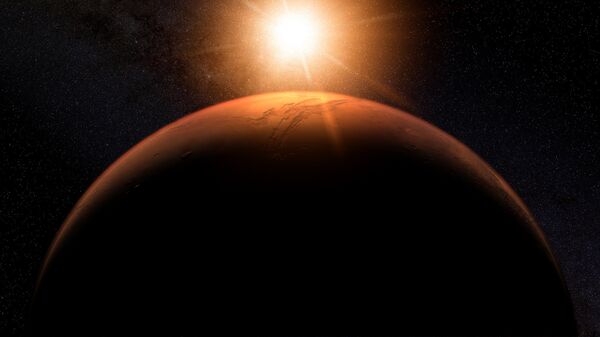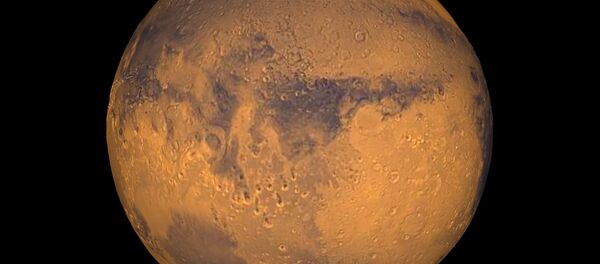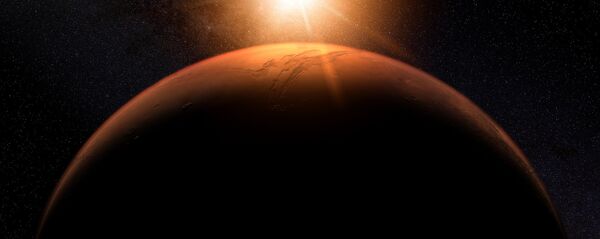Sputnik: How significant is the discovery?
Peter Fawdon: I think this is an incredibly significant discovery particularly because it is liquid water that’s been found to be present today on Mars rather than just ice and water vapor in the atmosphere, which we’ve known about for a while.
Sputnik: Why is it believed that it’s exactly water that the scientists have found?
Peter Fawdon: It’s not exactly water that they think they’ve found. I think they found water with a lot of salt in it; it’s really, really salty water. And they think that to be the case because radar reflectants that the instruments on the Mars Express Orbiter have found whilst looking over the last 12 years in this area of the south polar caps.
Peter Fawdon: I would say that I’m healthily skeptical. I think this is a really big result. They have a really big result but in science unfortunately you need to have some really solid and good evidence for it. Through detection they really made more data to be able to really back it up, but I think that it’s important to have published data and reports from down there so that we can follow it up. And certainly I think that it’s a very exciting result.
Sputnik: What are the chances that this is not a salty body of water in Mars? Could there be more lakes under the surface of Mars?
Peter Fawdon: Reading the paper that they have published, they’re suggesting there are other areas which have a similar kind of property in the radar data. It’s possible that if this result is real and there’s this body of water under the Martial south polar cap here, there could be smaller lakes like it. It’s certainly worth investigating.
Sputnik: Water is essential for sustaining life, what’re the chances that the lake could host life forms? And if it does, what life forms could there be, considering the conditions underneath the Martian crust? Do you have a view on that?
Peter Fawdon: The lake itself is probably very chilly, it’s probably about —70 degrees. It’s under quite high pressure and it may be very salty. It may be a very unpleasant place for life to live. But it’s a place where I think life could survive, but whether it is there or not is a totally different question. The lake itself is probably only a few million or tens of million years old; we understand the possibilities of life developing on Mars currently, that would happen very early on. Whether it managed to survive long enough to live in this place, which is unpleasant, but potentially livable, leaves to be seen.
Peter Fawdon: I’m sort of split – part of me feels that to be able to understand some fundamental questions about the origins of life in the universe, we need to be able to look at Mars as a pristine place and understand whether life evolved there separately and independently of Earth or not, as humans going there and building all over it would it very difficult to answer these questions.. I also feel that for human civilization to move out and explore the universe can really only be done by moving on and sending people to Mars and exploring there. I’m torn on the issue. I think humans have an inevitability in trying to expand and explore so I’m sure we’ll go there one day.
Sputnik: Absolutely, you mentioned the inevitability of the desire of the human race to want to expand and explore and maybe even live on new planets such as Mars. If that is your belief, just give us a certain idea of the timescale. Do you think within a hundred years there would be a possibility of human life living on other planets within the universe or is it just too difficult to estimate?
Peter Fawdon: I think it’s too difficult to estimate. I think if you had asked this question a hundred years ago people may have said you’d never be able to get to the moon. My personal feeling is that people will probably visit Mars to explore, maybe within my lifeline, maybe within the next hundred years, but whether they will live there and call it home remains to be seen. It’s certainly a very difficult place to live. If you had to choose to live on Earth or Mars, I think you would choose to live on Earth, it’s much more pleasant.



